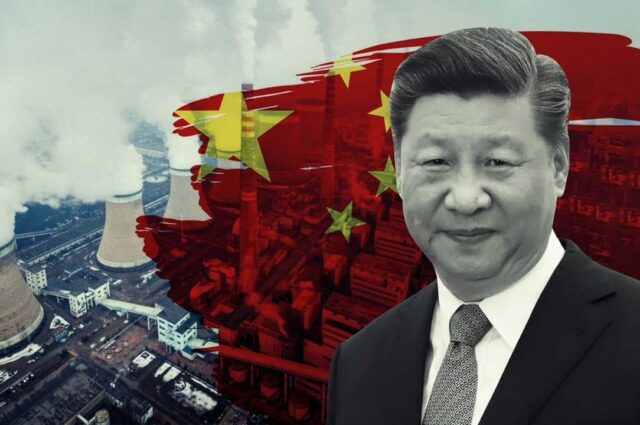The Chinese are going through one of the worst power outages in the country in a decade. There is no heating, no tap water, no cellphone network. Factories are forced to pull down their shutters.
In fact, not even traffic lights! And remember the initial days of COVID-19 when Americans rushed to buy toilet paper? In a similar way, the Chinese are rushing to buy candles from the stores.
At the time of writing this article, at least 20 provinces out of 31 are going through this power crisis. In the capital of a northeastern province Liaoning, the local officials have expressed fear over the potential “collapse of the entire grid” if power rationing wasn’t implemented ASAP.
But, what is happening in the country that’s developing at a quick pace? Why such acute power shortage all of a sudden?
Reasons For Power Outage In China
China’s power cuts are attributed to multiple reasons. High demand, rising fuel prices, shortage of coal, and China’s vow to reduce its carbon emissions. We will talk about each of them in brief. Let’s start with its connection to climate change.
China currently holds the record for being the worst polluter in the world. The President of China Xi Jinping pledged to make China carbon-neutral by 2060. The country also pledged to cut energy usage by 3% in 2021.
However, in the initial months of this year, only 1/3rd of the provinces could meet this target. Hence, the officials started implementing the rules with much more strictness. Local authorities are deliberately cutting power so that they can meet the emission targets set by the government.
It is also going to release its environment plan for 2030 soon. China is also expected to announce policies to cut emissions in the upcoming Glasgow conference held by the UN.
Shortage of Coal
Then, there is another reason. The shortage of coal. China’s huge power demand is met majorly by coal. Although its use has decreased over the years, it still remains the most important power source. In 2017, 80% of the power demand was met by burning coal as opposed to only 56% today.
President Xi Jinping announced to stop the construction of any new coal power plant overseas.
But now, coal prices are increasing globally. Also in 2020, Australia, which is the second-largest exporter of coal, announced an unofficial ban on coal in order to probe the cause of the COVID-19 pandemic.
Read More: China Power Crisis: Good Or Bad For India
China’s coal stock is depleting and it has been at a record low level these past few weeks. So, supply is affected. But, demand is only increasing because China is the leading exporter of a lot of goods whose factories need power to operate. As the country is recovering from the COVID-19 economic shock, it needs electricity in full capacity.
Is This A Viable Plan To Combat Climate Change?
No. It is not. In fact, it has the potential to do more harm than good. Realistically, people are more concerned about problems of the present than of the future. A social media platform Weibo, very popular in China, has had many posts from disappointed citizens.
“I don’t know if I can survive this winter. I can’t cook, I’m worried about gas poisoning without an [electric] exhaust fan. My kid was unable to join an Internet class because his teacher’s home also lost power,” posted a homemaker.
“If I have to choose between environmental protection and winter heating, of course, I choose the latter,” said another person.
This move by China is not sustainable. It cannot cut power in the long term because it will affect its economic ambitions. Relying on other sources of energy like hydro is again not reliable because monsoon patterns are never fixed. Wind and solar do not generate enough electricity to fulfill high power demands.
Even environmentalists are concerned. They feel that it will make people indifferent towards the environmental problems and will deter the government from implementing more efficient and reliable measures.
How can people be expected to live without technology in 2021? Measures to combat climate change need to be more realistic and better planned. Only then will the economic development, people’s content, and environment preservation go hand-in-hand.
Sources: Time, South China Morning Post, Bloomberg
Image Sources: Google Images
Find The Blogger: @TinaGarg18
This post is tagged under: china power outage, acute power crisis, electricity cuts, climate change, carbon emission, sustainable development goals, xi Jinping, Chinese government, no cellphone signal, factories shuttered, global warming, environment protection, environment vs power
Other Recommendations:
How To Spot Corporate Greenwashing: Are Companies Faking Their Environment Sustainability Claims?






































